Andrew Huberman, Professor of Neurobiology at Stanford University and host of the Huberman Lab podcast, joins us in a special journal club episode. Peter and Andrew each present a recent paper that sparked their interests, delving into the findings, dissecting their significance, discussing potential confounders and limitations, and exploring remaining questions. Importantly, they share their methodologies for comprehending research studies, providing valuable insights for listeners to navigate this process independently. Peter presents an epidemiological study reevaluating a noteworthy metformin result that intrigued the anti-aging community, leading to discussions on metformin’s geroprotective potential (or lack thereof) and the current lack of aging biomarkers. Andrew introduces a paper examining how our beliefs about the medications we take influence their biological effects, distinguishing the “belief effect” from a placebo effect and highlighting its exciting implications for the future.
Subscribe on: APPLE PODCASTS | RSS | GOOGLE | OVERCAST | STITCHER
We discuss:
- The motivation behind this “journal club” conversation [2:45];
- Why Peter chose a paper on metformin, how metformin works, and why it generated excitement as a longevity-enhancing agent [9:00];
- Defining insulin resistance and its underlying causes [16:15];
- Metformin as a first-line treatment for type 2 diabetes, and Peter’s evolving interest in metformin as a geroprotective drug [22:00];
- Defining the term “geroprotection” [24:45];
- The 2014 study that got the anti-aging community interested in metformin [26:00];
- Peter presents the 2022 paper that repeats the analytical approach from the 2014 Bannister study [33:15];
- Greater mortality in the metformin group: how results differed between the 2022 paper by Keys and the 2014 Banner paper [40:00];
- Understanding statistical significance, statistical power, sample size, and why epidemiology uses enormous cohorts [51:45];
- Interpreting the hazard ratios from the 2022 metformin study, and the notable takeaways from the study [56:45];
- Drugs that may extend lifespan, why Peter stopped taking metformin, and a discussion of caloric restriction [1:08:45];
- Current thoughts on the use of metformin for longevity [1:21:00];
- Could there be any longevity benefit to short periods of caloric restriction? [1:22:45];
- Peter and Andrew’s process for reading scientific papers [1:26:45];
- The biological effects of belief, and how “belief effects” differ from placebo effects [1:32:30];
- The neurobiology of nicotine: a precursor conversation before delving into the paper Andrew chose [1:39:45];
- Andrew presents a paper that demonstrates the impact of belief [1:45:30];
- Analyzing the fascinating results of the Perl paper [1:54:30];
- Exciting implications of the findings about “belief” reported by Perl and colleagues [2:03:15]; and
- More.
The motivation behind this “journal club” conversation [2:45]
Overview of today’s conversation:
- This is something Peter and Andrew have been wanting to do for a while and it’s something they do all the time
- Peruse the literature and find papers they are excited about
- This episode will focus on talking about papers we find exciting in real time, for the first time, in podcast format
- The goal is to give people some sense of why they’re so excited about these papers
- We feel people should know about these findings
- It’s also an opportunity for people to learn how to dissect information and think about the papers they hear about in the news
- To start thinking like scientists and clinicians
- To get a better sense of what it looks like to pick though a paper: the good, the bad, the ugly
- Papers might be downloaded from PubMed
- Peter used to run a journal club inside his practice
- Once a month a person would pick a paper and we would go through it in a formal journal club presentation
- We’ve gotten away from it for the last year just because we’ve been a little stretched thin
- Peter thinks it’s something we need to resume because it’s a great way to learn and it’s a skill
- People probably ask Andrew all the time, “What are the dos and don’ts of interpreting scientific papers?”
Is it enough to just read the abstract?
- No
The “How to” is tougher
- The two papers chosen today illustrate two opposite ends of the spectrum
- Andrew is going to talk about something and get into the technical nature of the assays, the limitations, etc.
- Peter is going to talk about a very straightforward, simple epidemiologic paper, that he thinks has important significance
- Originally he had gone down the rabbit hole on a much more nuanced paper at ATP binding cassettes in cholesterol absorption
- Ultimately, he thought this paper might be more interesting to a broader audience
Peter had a dream about Andrew last night
- In this dream, Andrew was obsessed with making a certain drink that was like his elixir
- It had all of these crazy ingredients in it, tons of supplements
- When Peter woke up, he was trying hard to remember them
- One thing it had in it was dew
- Andrew had to collect a certain amount of dew off the leaves every morning to put into this drink
- The best part: Andrew had a thermos of this stuff that had to be with him everywhere
- All of his clothes had to be tailored with a special pocket that he could put the thermos into so that he was never without this special drink
- Andrew replies, “Well, it’s not that far from reality, I’m a big fan of yerba mate. I’m drinking it right now in fact.”
- It comes in many forms, usually loose-leaf
- Andrew’s dad is Argentine, that’s where he picked it up
- It heavily caffeinated
- Don’t drink the smoked versions, those are potentially carcinogenic
- This thing about carrying the thermos close to the body, if you are ever in Uruguay or if you ever spot grown men in a restaurant anywhere in the world, carrying a thermos with them to their meals and hugging it close, chances are they’re Uruguayan and they’re drinking yerba mate
- They drink it, usually, after their meals, it’s supposed to be good for your digestion
- Andrew suggests they talk about dreams some other time
- Recently, he has been doing some dream exploration and he’s had some absolutely transformative dreams for the first time in his life
- One dream allowed Andrew to feel something he’s never felt before and it catalyzed a large number of important decisions in a way that no other experience has ever impacted him
- It was drug free
Was there a lot of work you had to do to prepare for that dream to take place?
- Oh yes, at least 18 months of intensive analysis type work with a very skilled psychiatrist
- But Andrew wasn’t trying to seed the dream
- He was just at a sticking point with a certain process in his life
- While he was taking a walk, he realized his brain (his subconscious) was going to keep working on this
- Then two nights later, he traveled to a meeting in Aspen and had the most profound dream ever
- He was able to sense something and feel something he’s always wanted to feel
- It was so real within the dream
- He woke up, knew it was a dream, and realized this is what people close to him that he respects have been talking about
- He was able to feel it and therefore can access this now in his waking life
- It was transformative
Why Peter chose a paper on metformin, how metformin works, and why it generated excitement as a longevity-enhancing agent [9:00]
- The paper we’re going to talk about is pretty straightforward: Reassessing the evidence of a survival advantage in Type 2 diabetes treated with metformin compared with controls without diabetes: a retrospective cohort study
- By Matthew Thomas Keys and colleagues; published last fall
- Also the subject of a recent newsletter
Why is this paper important?
- In 2014 (almost 10 years ago), Bannister published a paper that got the world very excited about metformin
- Many people have heard the concept of this paper
- In many ways it’s the paper that has led to the excitement around the potential for geroprotection with Metformin
- Metformin is a drug that has been used for many years (40-50+ years) as a first-line agent for patients with type 2 diabetes
- The brand name is Glucophage, but it’s a generic drug today
The mechanism by which Metformin works is debated hotly, but what I think is not debated is the immediate thing that Metformin does
{end of show notes preview}
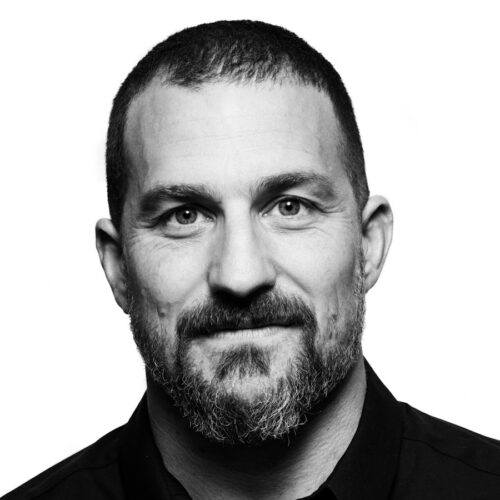
Andrew Huberman, Ph.D.
Andrew Huberman earned his Bachelor’s degree from the University of California, Santa Barbara. He went on to earn a Master’s degree in Neurobiology and Behavior from the University of California, Berkeley, and a PhD in Neuroscience from the University of California, Davis. He completed his postdoctoral training at Stanford University.
Dr. Huberman is currently an Associate Professor of Neurobiology and an Associate Professor (by courtesy) of Psychiatry and Behavioral Sciences at Stanford University. His laboratory studies neural regeneration with the goal of developing treatments to prevent and reverse vision loss. They also study neuroplasticity and circuits for anxiety and visually-driven autonomic arousal.
In 2021 Andrew started the Huberman Lab podcast where he discusses neuroscience and the connections between the brain, our organs, our perceptions, our behaviors, and our health. This has become one of the top-10 podcasts on Apple Podcasts and Spotify. [Stanford]
Twitter: @hubermanlab
Instagram: @hubermanlab


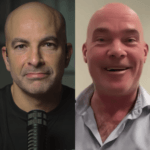
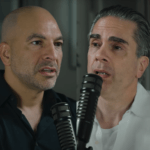
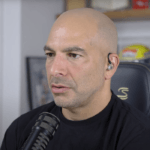
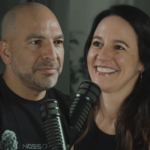
Very informative and a must-listen to anyone in the practice of medicine!
Thank you for this informative podcast, it answered alot of questions.
I stopped taking Metformin after 3 weeks on the lowest dose prescribed for pre-diabetes. After learning more; in my modest opinion you either have Diabetes or you don’t.
I did feel the effects of high lactate while on Metformin ~ fatigue.
Feeling back to normal 🙂 Following a healthy eating plan and exercise.
Great episode. Quibble: to establish no treatment effect, should use something like equivalence testing and not power analysis.
Here’s a simple heuristic: just look at the 95% confidence interval for the effect; if it includes clinically meaningful effect sizes, you cannot conclude there’s no effect; in contrast, if the CI only includes trivially small effect sizes, it’s reasonable to conclude there’s no effect.
Wasn’t Huberman wrong to assert that the nicotine study illustrates how the belief-effect can modulate drug effects? There were no control groups receiving placebo in place of nicotine; this completely eliminates the ability to make any statement whatsoever regarding the effect of belief on nicotine-effects.
Motion that you do more of these types of episodes with Huberman. I can sense my IQ nudge up just listening to you guys talk shop.
Thank you for the insightful conversation Peter and Andrew. I enjoyed the episode and also appreciated the dream you shared at the beginning. It sounds like you’re doing some very real inner work.
As a family physician who also spends too much time in my head but also going through analysis, the image of the dew really stuck with me. Given how water in dreams often symbolizes the unconscious, dew seems like the bits of the inner world that crystallize into or waking world and are there briefly for the taking and intaking if we will have them. Almost as if Andrew, as an inner and wise friend who also brings the lens of science, is affirming to you that these strange things are precious and have value. Perhaps that they are the mirror to the work you do in the outer world; that broadening and unfolding internally is a path akin to the healthspan of the psyche. Thanks for your sharing.